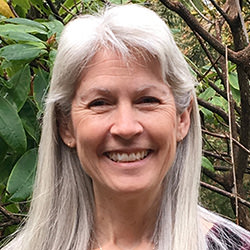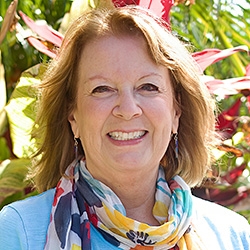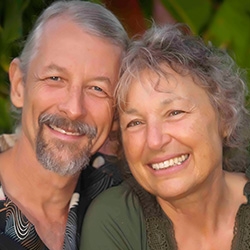

Search Results: choice
-
When a relationship has both differentiation and bonding you can express differences and unmet needs, and responsibly do your own thing without it being a threat to the bond with another. You honor each others choices. There's trust rather than a sense of resentful obligation. Needs-based negotiation is easier. See if you tend to emphasize only differentiation or bonding in your relationships. Imagine how to support the opposite.
-
Awareness of how we're holding our own and others' needs is important to our development. In learning to value needs, we often go through three stages: passive, aggressive/obnoxious, and assertive/mutual. As we learn and grow, we may relate to the following differently: Whose feelings and needs are important, who is responsible for what, how our choices impact others, and consideration for ourselves and others.
-
With coaching or counselling clients, their resistance can show up as “bracing against” something. But if we push back against their resistance, we miss noticing what they're protecting or embracing. By going into resistance clients build awareness and often shift when they get clear about their underlying needs, and new choices. Some clients don’t shift even after we’ve tried everything. In that case, read on to learn about Frank Farrelly's "provocative therapy".
-
-
If you're unpleasantly triggered during the holidays you may find yourself responding in ways you don't like. Start by acknowledging how affected you are to bring in more curiosity, mindfulness and eventually, authentic and discerning choices.
-
Being self-responsible is about empowerment — via noticing what is potentially in our locus of control, getting to know ourselves better, looking at our own role in how we experience life, and making conscious choices to act within our own power. This requires us to be mindful in relating our stories to our needs. Read on for more on this, and the various pifalls within thinking about self responsibility.
-
In pandemic we can notice where we seek security. For some, financial systems that seemed to offer security have suddenly become unpredictable. For others, living without such privilege, resources are even more difficult to access. And we become more vulnerable to illness and death. These changes can trigger fear, but also motivate choices that contribute to a sense of security. Read on for more.
-
-
-
-
-
-
Ask the Trainer: Is a confidentiality agreement typically used in NVC practice groups?
-
Ask the Trainer: Exploring how unconscious motivations influence the needs we identify and express.
-
Kelly Bryson explores courageous honesty and how truth shared openly deepens connection.
-
Listen to this audio to learn the value of focusing on needs in an NVC model, either for the first time or as a refresher course. Living from a needs-consciousness creates abundance, clarity and choice. Using three examples from participants, Mary guides the group towards identifying and then connecting with the needs of both parties involved in each situation. It becomes clear very quickly that people choose different ways to support their needs; and many times they have the same needs in a given situation. When we understand this, we are able to create peace in our relationships and negotiations.
“Everything someone does or says is an attempt to meet a need,” says CNVC Certified Trainer Mary Mackenzie. This simple statement is a foundational understanding in Nonviolent Communication; once you gain skills at living in a “needs-consciousness” you will literally change your life and your perception of the world, and improve all of your relationships.
-
The NVC Circle of Life is a mandala illustrating the process and consciousness of Nonviolent Communication. Mandala literally means "sacred circle" and symbolizes wholeness, balance and harmony.
-
Some of my core beliefs make experiencing gratitude difficult . For example, it’s difficult to celebrate others or myself when I think I have to prove my worth in order to be accepted. So much energy goes into proving myself, there’s little left for celebration.
-
Transform your relationship with money, scarcity, and abundance in this inspiring program.
-
Jim and Jori offer a tip to stay present in the face of our reactivity to witnessed conflict.
Quick Links

Stay in Touch!
We value your privacy, won't share your email address and you can easily unsubscribe any time.















